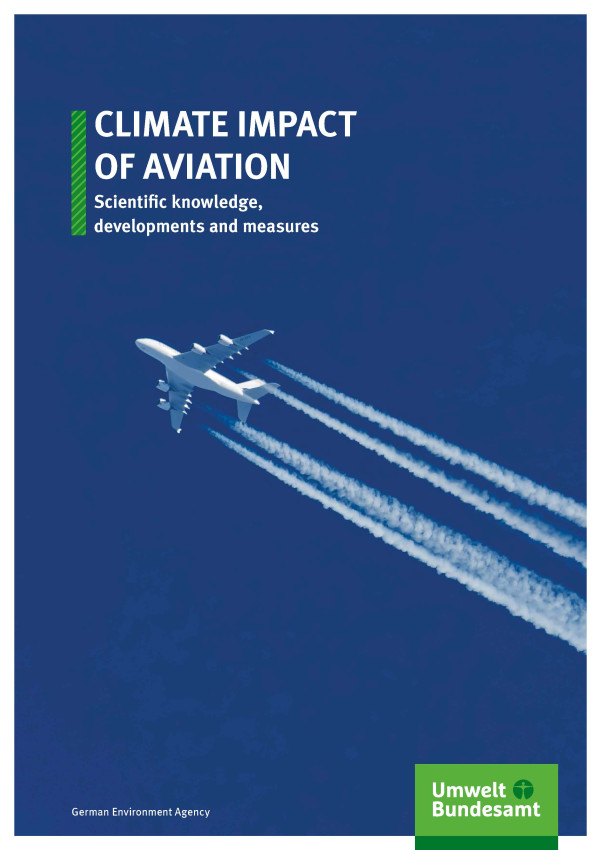Aviation affects the climate. Combustion of kerosene fuel results in carbon dioxide (CO2), but also other climate-impacting substances whose effects are referred to as "non-CO2 climate effects". What are these substances and how strong are their effects? How strong would the climate impact of air traffic be in the future if flying continues to grow as hitherto? How can the impact of air traffic on the climate be reduced through technical, organizational and regulatory measures?
This brochure presents the current state of knowledge on the climate impact of air traffic in a generally understandable way. It shows possibilities at technical and legal level for reducing the impact on the climate, but also what passengers can do.
The information brochure was produced by the German Aerospace Center on behalf of the German Federal Environment Agency.


